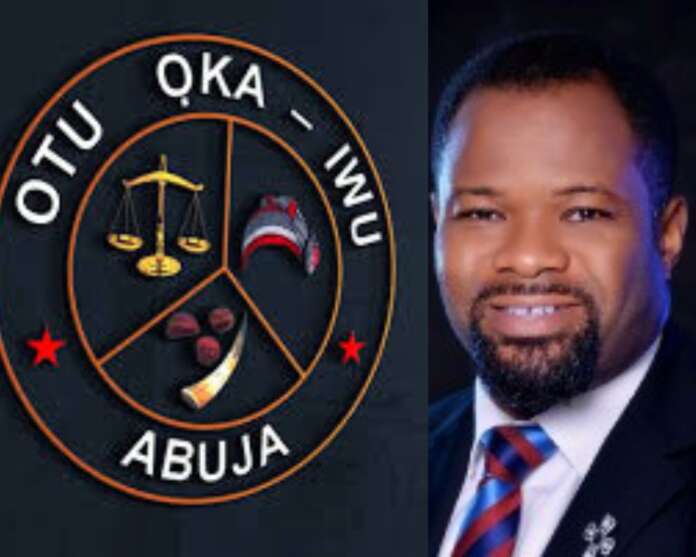Press Release
The issue of underrepresentation of Ndi Igbo in federal appointments has long been a contentious matter, with concerns escalating over the composition of the National Population Commission (NPC). Given the critical role this commission plays in census activities, determining population figures that directly affect resource allocation, political representation, and developmental funding, the lack of fair Igbo inclusion raises serious questions about the credibility and accuracy of census data regarding the Southeast. This discrepancy has led to justified concerns about the population figures that would be declared for the Southeast.
Otu Oka-Iwu Abuja strongly advocates for a proactive approach and advices that the Southeast should conduct its own census and maintain independent records, allowing for an objective comparison against NPC declared figures. This measure is necessary to safeguard the region’s political and economic interests and ensure that national population data does not become a tool for marginalization.
The power to conduct a population census in Nigeria is exclusively vested in the federal government through the National Population Commission (NPC) by virtue of Section 213(4) and Second Schedule, Item 8 of the Exclusive Legislative List of the 1999 Constitution (as amended), the Federal Republic of Nigeria Official Gazette No. 2 (2009) and the National Population Commission Act (Cap N67, Laws of the Federation of Nigeria, 2004) establishing the National Population Commission (NPC) as the only body authorized to conduct population and housing censuses in Nigeria.
However, given the challenges of none inclusion of Ndi Igbo in the recent composition of NPC, Otu Oka-Iwu Abuja advocates that the Southeast should establish its own independent regional census initiative to verify and maintain accurate records of its population. This can be achieved by the formation of an Independent Igbo Census Bureau (ICB) and a collaboration with Town Unions and Local Governments to conduct sample based audits in Igbo states.
By doing this, the Southeast will be applying a global best practice and initiative to ensure the accuracy of population data from the NPC. Several countries and regions have implemented independent population audits alongside official government censuses. India, with its vast population, has developed independent verification mechanisms to cross-check official census data where census accuracy is disputed. Kenya has faced challenges with census accuracy, particularly in marginalized regions. In the United States’, the U.S. Census Bureau conducts a Post-Enumeration Survey (PES) to assess the accuracy of official census results. This survey identifies undercounts and overcounts, ensuring that population figures are not manipulated for political purposes.
In South Africa, a dual census methodology, where independent audits are conducted alongside government led censuses have been employed to ensure that population figures reflect reality. State led demographic initiatives have also been conducted by Lagos State under the Household Enumeration Project although for urban planning and development projections. The State Population Mapping is also an initiative geared towards tracking the demographic shifts and assess infrastructure needs in Kaduna State.
By adopting elements from these global and state models, the Southeast can establish a credible, independent population audit system that ensures fair representation in national policymaking. Otu Oka-Iwu Abuja urges Southeast Governors, and lawmakers to immediately commission this initiative and safeguard the region’s demographic identity. The initiative to conduct demographic studies and population surveys will not only enhance independent data collection for regional planning, economic forecasting but will provide grounds to challenge of census discrepancies using comparative data If there are concerns about NPC’s official census figures. Southeast can use state collected data to highlight disparities and to engage the Census Tribunal for redress If the Southeast believes that NPC census figures underrepresent its true population.
Indeed, Igbo representation in NPC matters is because, the composition of the NPC significantly impacts how census data is collected and processed. If Igbo representatives are excluded or underrepresented, key decisions, such as resource allocation for census operations, methodology for data gathering, and analysis, may not sufficiently factor in the demographic realities of the Southeast. There is also the Risk of downplaying Igbo population figures because historically, there have been discrepancies in population figures allocated to the Southeast versus other regions, with suspicions that the numbers reported for Igbo states have been systematically undercounted.
Without fair representation in the NPC, there is a risk that official census results may continue to misrepresent the true population strength of the Southeast, weakening its bargaining power in national policymaking. Census data directly influences representation in legislative seats, federal allocations, and infrastructure development. If the Southeast is shortchanged in population figures, it leads to reduced political leverage, lower funding for developmental projects, and diminished electoral influence, all of which have long-term consequences for Ndi Igbo.
With independently verified census data, the Southeast can challenge discrepancies in NPC figures with factual evidence. This initiative would ensure that the Southeast is not forced to accept population statistics that may have been skewed to serve political interests. A comparative census will allow Ndi Igbo to demand for equity and defend its interests while reinforcing the need for transparency in national population reporting. Ignoring the underrepresentation of Igbo interests in the NPC risks reinforcing systemic marginalization. By conducting its own census, the Southeast will establish a credible population record that serves as an unbiased benchmark against official NPC figures.
Otu Oka-Iwu Abuja calls on Southeast Governors, lawmakers, and stakeholders to support this initiative. The time has come to take charge of the region’s demographic identity and ensure that every Igbo citizen counts, both in numbers and in national policy.
Sir Chidiebere Nwabueze Udekwe, KSC
PRESIDENT
OTU OKA-IWU ABUJA





